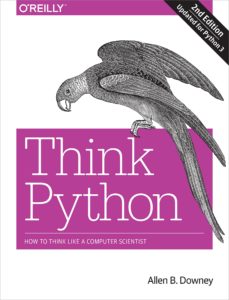What do we know about Python? Is it so easy to master it with the right training?
According to the 2020 reality, the use of Python may give you an almost limitless supply of new career opportunities. Many statistical sources admit that this language is one of the top popular programming languages nowadays. Python is gaining more and more hearts and minds. It allows you to focus on the core functionality of the application by taking care of common programming tasks.
What is the Python programming language used for? What is the main purpose of Python? How to recognize its key benefits? This post is aimed to help you find the answers. Let’s dive in!
Contents
What is Python? Brief Definition
Python is a general-purpose coding language that can be used for different types of programming and software development, not only for web development (unlike CSS, HTML, and JavaScript). This also includes software development, back end, data science, and writing system scripts. It was created in 1991.
This programming language is surprisingly easy to read. It does not transform code to become computer-readable. Developers designed Python to be a real chameleon of the programming world.
Python is aimed to deliver a clearer and more logical code for small-scale and large projects. We can compare it with a Rubik’s cube – the language has many sides to it so you can twist and play around. It is capable to implement various computer procedures to produce technology that can amaze.

Why do we call it Python?
This name is not a complicated acronym, metaphor, or something to do with bloodthirsty snakes. The programming language was named after Monty Python. The story about this name is quite strange but we will not take your time and will better get to the point.
So why do people use Python frameworks and what makes them distinct from other coding languages?
Why Is It Worth Writing Software Applications in Python?
Here’s the list of the most evident benefits of Python:
Readable code
Building a software application requires focusing on the quality of its source code to simplify maintenance and updates. The Python rules allow expressing concepts without writing additional code. Additionally, as we’ve mentioned above, Python emphasizes code readability and allows you to use English keywords instead of punctuations. You may use it to create outstanding custom apps without writing additional code.
Powerful library
Thanks to the large standard library, Python looks more beneficial over other programming languages. This robust library allows choosing from a wide range of modules according to your precise needs. Every module enables you to add functionality to the Python app without writing additional code.
Compatibility with many platforms and systems
Python supports various operating systems so you can use its interpreters even to run the code on specific platforms and tools. This is an interpreted programming language that allows running the same code on multiple platforms without recompilation. It means that you do not need to recompile the code after making any alteration.
Multiple programming paradigms
Python supports several programming paradigms. Its basic features also support different concepts in functional and aspect-oriented programming; it is famous for a dynamic type system and automatic memory management. Thanks to the programming paradigms and language features you can apply Python for developing large and complex software applications.
Many open-source frameworks and tools
Python, as an open-source language, helps you to significantly decrease software development costs. You may even apply several open source Python frameworks, libraries, and tools to curtail development time with no increased costs.
Simplifying complex development
You are able to use Python for developing both desktop and web apps, as well as for complex scientific and numeric applications.
This language is designed with features to facilitate data analysis and visualization. The advantages of the data analysis features of Python will help you to create custom big data solutions without putting extra time and effort. Python is also utilized to accomplish AI (artificial intelligence) and natural language processing tasks.
Adopting test-driven development
Python can be used for the rapid creation of a prototype of a software application. You can build the app directly from the prototype simply by refactoring the Python code.
The language makes it easier for you to perform coding and testing simultaneously by adopting the test-driven development approach. Write the required tests before writing code and use the tests to assess the app code continuously.
Feel free to read our related posts:
Python vs PHP: how to define the winner?
Python vs JAVA: What is your choice?

Now when you know the main benefits of Python, it’s time to recognize what spheres and areas may apply the language.
What is Python Used For?
1. Web development issues
Building web sites is the first sphere where Python is used just because it is one of the simplest programming languages, meaning this in a good way.
Python development strongly emphasizes code readability and allows developers to use English keywords instead of punctuation. Its clean and readable codebase helps to maintain and update software without putting extra efforts. Python has pre-built libraries and web frameworks (including Django, Pyramid, and Flask) that is especially great for using on back end web development projects. It also shortens the amount of time people spend on projects by allowing them to repurpose chunks of code.
2. Scientific computing, data science
You may easily apply Python for scientific research and computing as it provides some science-friendly or science-specific libraries. For example, Psychopy for neuroscience, Biopython for biology and bioinformatics, Graph-tool for statistical analysis of graphs, Astropy for astronomy, etc.
The role of Python in parsing data is definitely one great advantage of learning it. Due to the rise of data science, there are many chances that more and more tech roles will revolve around it.
3. Startups
The truth is that startups (especially tech startups) love Python as this language is easy to use and scalable. Dropbox is one of the most vivid examples.
4. Machine learning
Using Python for machine learning is also a pretty cool option. Machine learning includes financial services, speech recognition, and even the recommendations Netflix serves up every time you log in. There are specific machine learning libraries and frameworks (including sci-kit-learn and TensorFlow) that allow using Python for machine learning.
5. Fintech
Python id the language that dominates in the financial industry and fintech. It is used all over the financial industry and many finance tech recruiters admit that Python is the fastest growing language in finance in general. For example, many big banks (such as Bank of America) have worked hard to transform their tech stack from legacy code to Python.
Can I learn Python on my own?
Is it hard to learn Python if you are unfamiliar with computer programming? This question is actually popular nowadays, especially for those who keep in mind the question “how to become a Python developer”?
Python is a high-level language, however, it is not hard to learn it from scratch. It is actually much simpler than many other types of programming formats.
In order to master this skill, make sure you learn, and execute its core concepts. Understanding the Python programming fundamentals, you will be able to apply that knowledge in any number of ways. You will be able to use the skill to help bolster another career where computer programming plays an essential role. Here’re some popular books that will help you to succeed:
- Python Cookbook by D. Beazley and B.K. Jones
- How To Think Like A Computer Scientist: Learning With Python by A. Downey, J. Elkner, and Ch. Meyers.
- Learn Python The Hard Way by Z.A. Shaw
- Fluent Python: Clear, Concise, and Effective Programming by L. Ramalho
- Python Programming: An Introduction to Computer Science by J. Zelle
- Natural Language Processing With Python by S. Bird, E. Klein, and E. Loper
- Invent Your Own Computer Games with Python by A. Sweigart
- Think Python: How to Think Like a Computer Scientist by A.B. Downey

Takeaways
Python is an object-oriented, high-level programming language with dynamic semantics that is becoming more and more popular nowadays. Python is widely used for Rapid Application Development due to its high-level built-in data structures combined with dynamic typing and binding. Its simple and easy to learn syntax emphasizes readability and therefore reduces the cost of program maintenance.
Programmers usually fall in love with Python because of the increased productivity it provides. What is your experience of working with this programming language? What are the benefits of Python you got? Please, share your thoughts.





